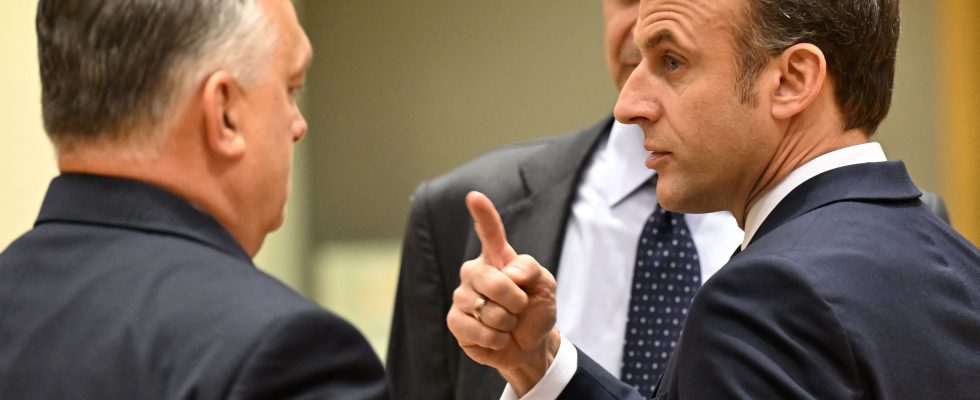This is the return match, after a first leg which ended in a draw. In December 2023, European leaders managed to validate the opening of Ukraine’s accession negotiations, but Viktor Orban managed to block the 50 billion euros intended for kyiv for the next four years. Thursday January 31, the 26 hope, this time, to make the irreducible Hungarian bend. Formally, Europeans must unanimously validate the revision of the Union’s multi-annual budget to include aid to Ukraine, but also funds for migration and industrial policies.
For days, Brussels diplomats have been testing different options to coax Budapest. The latest news is that they are proposing an annual discussion at the highest level on the main lines of assistance to Ukraine, but Viktor Orban demands to be able to veto each stage. Despite a final meeting on Wednesday January 31, the conciliations were not successful. The stakes are nevertheless significant. First of all, for Ukraine: while the American Congress is blocking any payment, kyiv needs European money to operate the state and pay salaries. Hurry up. From March, the country will run out of liquidity, according to international financial organizations. For the European Union then: Viktor Orban’s 26 partners want to show that they remain united against Russia, as the war prepares to enter its third year.
Unwelcome leak
“The level of nervousness is rather high,” notes a European diplomat. Recent leaks to the press have fueled the Hungarian Prime Minister’s recriminations. “We have made compromise proposals and in return, we are being blackmailed by Brussels,” he denounced on the social network Financial Times from a note from European officials. This predicts a disaster for the Hungarian economy if Budapest does not receive the 20 billion in European funds frozen by Brussels for violations of the rule of law. “This leak is unfortunate, it gives him an ideological argument which serves his narrative,” annoys a source involved in the negotiations. The Elysée nevertheless recognizes that “radical options” are part of the debate in the face of the “mixed signals” sent by Viktor Orban.
Everyone continues to hope for an agreement at 27. So far, the strong man of Budapest has always fallen into line in extremis. Crises are generally resolved within the confines of the European Council, when it faces its peers. Thus, last December, he opportunely left the room while his counterparts gave the green light to the launch of accession negotiations for Ukraine and Moldova. On the subject of the European budget, such a stratagem is not possible, because it is necessary the imprimatur of all.
Different scenarios are circulating to have a solution in the event of disunity. “The European Council cannot end in failure,” warned the representative of a large member state. “If a solution of 27 is not possible, we will have to move to 26,” explains another diplomat. At 26, the Europeans can continue to help Ukraine financially, but it will be more “acrobatic”, according to the Elysée and with less long-term visibility for kyiv. The common framework of the European budget makes it possible to act faster and more effectively.
“Don’t be afraid, we will get there”
Beyond aid to Ukraine, a persistent veto by Orban will openly raise the question of his “loyal cooperation”, one of the bases of the European Treaties. The European Parliament is already calling for Article 7 to be moved to a new stage, which provides that a country can be deprived of its right to vote. “If there is a political problem this Thursday, we switch to another situation, we will think differently, recognizes a high-ranking diplomat. In this context, article 7 could become an option, provided we are sure to be able to complete the procedure.” Indeed, unanimity is required for the country in question.
“Let’s hope that wisdom and a sense of responsibility will prevail,” sighs a Brussels source. Before sitting down around the table, most heads of state and government will have participated in a tribute to Jacques Delors, who died on December 27. “Don’t be afraid, we will get there,” the former president of the European Commission said in a testamentary speech in 2013. An encouragement that they will really need in the coming days.
.
